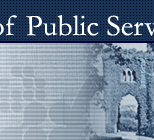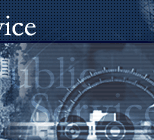| Folks:
The Administration’s plan for Iraq, after “regime
change” and the removal of
weapons of mass destruction (if any), is to see that a democracy
rises from
the ashes of the Saddam Hussein regime in Iraq – and
maybe elsewhere in the
region.
This is indeed a worthy goal, and I support it wholeheartedly.
But to meet
the goal, we need to know (a) how to go about it, and (b)
how hard will it
be? Some recent articles shed some light on both questions.
Let’s take the second question first. The
New Republic's John Judis has
written a brilliant essay on the difficulties of creating
democracy in an oil-rich state. A few quotes:
“Democracy is based, above all, on the separation
of civil society from the
state. It depends on the existence of an independent realm
of social and
economic power, protected from arbitrary state power by the
rule of law. The
components of civil society include what Tocqueville called "civil
and
political associations"--social clubs, churches, charitable
organizations,
and political parties--but the most important are private
businesses and
unions organized in a competitive, capitalist marketplace.
It is these
institutions--not the formal apparatus of elections--that
guarantee popular
self-rule by erecting a barrier against lawless government.
“In the Middle East, oil wealth provided a shortcut
around the centuries-old
transition from feudalism to capitalism and from absolutism
to democracy that
had taken place in Western Europe. The oil states did not
have to endure the
privations of what Karl Marx called the "primitive accumulation
of capital." They didn't have to
coerce peasants to leave their land to become
impoverished wage-laborers in order to provide profit margins
for fledgling
entrepreneurs. They didn't have to extract taxes from a reluctant
population.
And they didn't have to grant democratic rights to a citizenry
that grew
increasingly restive under these demands.
“Today, all of the world's oil nations, except Norway,
have either
authoritarian governments, such as those in Saudi Arabia
and Iraq, or what
Carnegie Endowment for International Peace political scientist
Marina Ottaway
calls "semi-authoritarian" governments. Some of
the latter, such as Algeria,
Indonesia, and Nigeria, have embraced aspects of democracy
only to fall back
onto authoritarianism and one-party domination as oil revenues
have provided
the means for repression and corruption as well as co-optation.
“A new regime in Baghdad will not only have to overcome
a fractious citizenry
and potentially hostile neighbors but also what political
scientists call the "
resource curse." A post-Saddam Iraq will have to do
what no other Middle
Eastern or African oil state has yet succeeded in doing:
building a viable,
independent civil society on the economic foundation of black
gold. If Cheney
doesn't understand the difficulties of doing that now, he
will soon.”
Our second question was how to go about creating democracy
in Iraq. It would
appear from Judis’ analysis that if the new government
in Iraq – any new
government in Iraq – gets its hands on the income stream
from “the second
largest oil reserves after Saudi Arabia,” democracy
there is doomed.
How then to keep oil’s income stream out of government
hands? Two ideas have
been tried, one of them successfully. The unsuccessful model
is to give every
Iraqi shares in the oil revenue. This is what Russia tried
to do as it
privatized the public sector after the fall of the Soviet
Union. The problem
was, people sold their shares. Duh! And whether they sold
the shares for
cabbage or for college, they were soon as poor as they were
before, and the
power went to those who bought the shares. And that’s
where power now resides
in Russia.
The successful idea was outlined in an article in Sunday’s
Washington Post.
Here’s an excerpt: “[M]ost Iraqis have never
seen a penny of the country's
oil money. Now, with much of Europe and the Arab world suspicious
about the
Bush administration's motives for the war -- dramatized most
vividly by the
protest slogan "No Blood for Oil" -- the legitimacy
of postwar Iraq and the
U.S.-led reconstruction effort hinges in part on what happens
to Iraq's oil
industry. There is a way to both give the Iraqi people a
stake in the
rebuilding and avoid the charge that the United States intends
to seize
control of the oil fields: adopt the Alaskan model.
“
In 1976, voters in Alaska amended the state's constitution
to set aside 25
percent of the funds received by the state in connection
with the development
of its oil reserves. The money goes into a permanent fund,
run by a board of
trustees accountable to the state government and the people
of Alaska. The
fund currently holds about $23 billion in various investments,
down from a
high of $26 billion before the stock market slump.
“
The key feature: Each year the fund pays a dividend to every
man, woman and
child who can prove at least one year's residency in Alaska.
In 2002, the
dividend was $1,540 a person; for a family of four, this
added up to more
than $6,000. Since 1982, dividends have totaled $21,902
a person.”
The Alaska model not only sounds good, but has actually
been put into
practice. And as you all know, “In theory there’s
no difference between
theory and practice, but in practice there is!”
So there it is – a way to foster true democracy in
Iraq, by putting some of
Iraq’s oil revenues out of the reach of the new government.
Me, I’d put the
management of the Iraqi oil trust in the hands of the United
Nations or
perhaps Switzerland. We’ve answered our two questions.
Bob
Knisely
Addendum: Interestingly enough, a college classmate of mine,
Peter Barnes,
would use much the same model to attack global warming and
other
environmental insults. By declaring the atmosphere (and perhaps
forests and
water sources, etc.) to be held in trust for all Americans
now and in the
future, the Congress could answer the question that’s
the title of Peter’s
book, “Who Owns the Sky?” The answer, based in
part on the Alaska
experience, would be “We the citizens of the United
States do, and you must
pay us if you want to pollute it.” You may have heard
about buying and
selling “pollution rights.” This idea is in that,
ahem, stream of thought.
Impossible in today’s political world you say? Did
you know that Senators
Lieberman and McCain have introduced a bill that would move
us a long way in
that direction? Here’s the press release.
Peter Barnes is not some nutcase. He started Working Assets,
a mutual fund
company that invests in companies that are socially aware,
and then a phone
company, again called Working Assets, that offers low rates
and opportunities
for social action. You could look it up. You could read the
book.
And you could look up www.skyowners.org, too. As Ben Cohen,
one of the
founders of Ben & Jerry’s has said, “Peter
Barnes has started mutual
companies and a phone company. Now he’s designed a
product that will help
save the planet and pay us real cash to boot. It’s
the best thing since
Cherry Garcia!”
Is this “Note on the News” just a shameless
plug for a friend’s idea? I’ll
leave that as an exercise for the reader…
WebLink Citations:
1) "Blood for Oil WILL
BLACK GOLD STYMIE DEMOCRACY IN IRAQ"? by
John B. Judis
The New
Republic,
Issue date: 03.31.03
2) "Oil:
Give Every Iraqi An Equal Share" Scott E. Pardee is a professor
of economics at Middlebury College in Vermont, Washington Post
Sunday, April 13, 2003; Page B03 3) "Who Owns The Sky?" by Peter Barnes www.skyowners.org
| 



